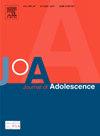Mental ill-health and substance use bear significant public health burden on young people. Prevention is key. Trauma-informed approaches to prevention of mental ill-health and substance use demonstrate significant promise, yet it is unclear how well existing approaches work for young people targeting mental ill-health and substance use. This review aimed to assess the effectiveness, feasibility, and acceptability of trauma-informed mental ill-health and/or substance use prevention programs for young people.
We searched the PsycINFO, CINAHL, Embase, MEDLINE, and Cochrane Library reference databases for peer-reviewed studies of trauma-informed mental ill-health and/or substance use prevention programs for young people published between 2013 and 2022. Studies in any language were included and reference lists of included articles were scanned for additional studies of relevance.
In total, 30 studies were included in this review, comprising five randomized controlled trials (RCTs), seven non-RCTs, 10 quasi-experimental designs, and eight qualitative studies. Among the 30 studies, 27 unique trauma-informed prevention interventions were detailed. Eighteen studies reported statistically significant decreases in mental ill-health, and two studies reported significant decreases in substance use outcomes among participants, up to 6 months following the interventions. Most preventative interventions with statistically significant effects were selective (rather than universal or indicated) in their approach (n = 10, 55%). Broad acceptability and feasibility of trauma-informed prevention programs was observed among studies reporting this information though most quantitative studies were at high risk of bias and/or did not include a control group, whilst qualitative studies tended to report research conducted without a priori research aims.
This review synthesizes for the first-time evidence on the effectiveness (or efficacy), feasibility, and acceptability of trauma-informed mental ill-health and/or substance use programs for young people, especially for those exposed to traumatic or adverse experiences. While there are promising efficacy outcomes, further research conducting rigorous, well-powered RCTs is required for large-scale evaluation and scaling of the potential preventative benefits of such programs.


